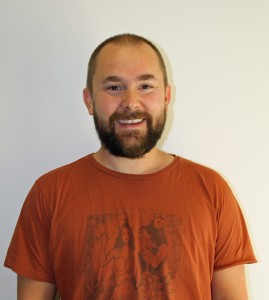Two researchers at CEMIR, Atle Granlund and Richard Kandasamy have received the “Young Research Talents” – grants that is a part of the FRIPRO-funding (Norwegian link) for researchers early in their career. FRIPRO is an open, national competitive arena that covers all fields of research. It aims to promote scientific quality at the forefront of international research, boldness in scientific thinking and innovation, careers for young research talents and mobility for researchers early in their career. FRIPRO aims to contribute to strengthen Norway’s national knowledge base by funding broad-based, independent research, that is a prerequisite for all other research and is essential for future industrial development and for policymaking.
The competition in FRIPRO is tough, and only the best researchers with particularly good projects and very well-written proposals have a chance at succeeding.
Atle Granlund received 6,5 mill NOK to the project “Functional implication of genomic variance in IBD” and Richard Kandasamy got 8 mill NOK to the project “Phosphorylation Dynamics of Toll-Like Receptor Signaling”. The researchers are thankful for this grant that make it possible to start working on their projects.
– I am really happy and relieved! To receive this grant means I get to do what I have planned and it is a confirmation that others think it is a good idea, he says in an interview with Universitetsavisa (Norwegian). The funds he receives will cover salaries for himself and assets over the next four years.
Granlunds project will investigate the role of hereditary traits in the pathogenesis of Inflammatory Bowel Disease (IBD). IBD is a group of inflammatory diseases hallmarked by chronic inflammation of the intestinal mucosa with intermittent remission. The treatment options are few, and no treatment alternative is effective for all patients.
– By combining genotyping and gene expression data from an IBD patient cohort in an eQTL analysis, we hope to identify how the genomic variation influences the gene expression in the inflamed colonic mucosa, and how this correlates with prognosis and treatment response in the individual patients, Granlund explains. Interesting finds will be further evaluated using colonoid cultures established from the same patient cohort. The study will be further aided by almost ten years of clinical data on the cohort and the additional knowledge drawn from GWAS analysis from the HUNT population.
– Only by better understanding the significant diversity in the IBD patient group can we hope to find better treatment options and to reach a personalized medicine approach, says Granlund.
Kandasamys project aims to investigate the role of phosphorylation in the first line defense, the innate immune response. Innate immune signaling can be activated under threat from microbial organisms or upon tissue damage. Toll-like receptors (TLRs) are the largest family of molecules that sense these danger or pathogen-associated signals and trigger inflammatory response resulting in clearance of the pathogen and restoration of cellular homeostasis. Post-translational modifications (PTMs) such as phosphorylation, are crucial for these cellular processes.
– Our data suggests that the family of kinases and phosphorylation-based signaling are crucial in a range of inflammatory processes; and the potential existence of a phosphorylation code for specific TLR signaling pathways. We aim to take a systems-level interdisciplinary approach to systematically investigate the role of highly druggable kinases and phosphorylation-based signaling in TLR signaling pathways. This has the potential to yield new insights into innate immune signaling and will have implications for development of therapeutic strategies in inflammatory diseases and beyond, says Kandasamy.
See also this blog on Kadasamys research.


